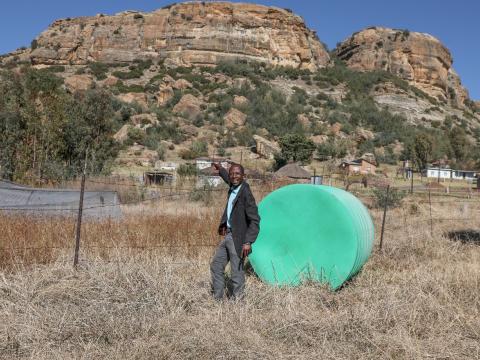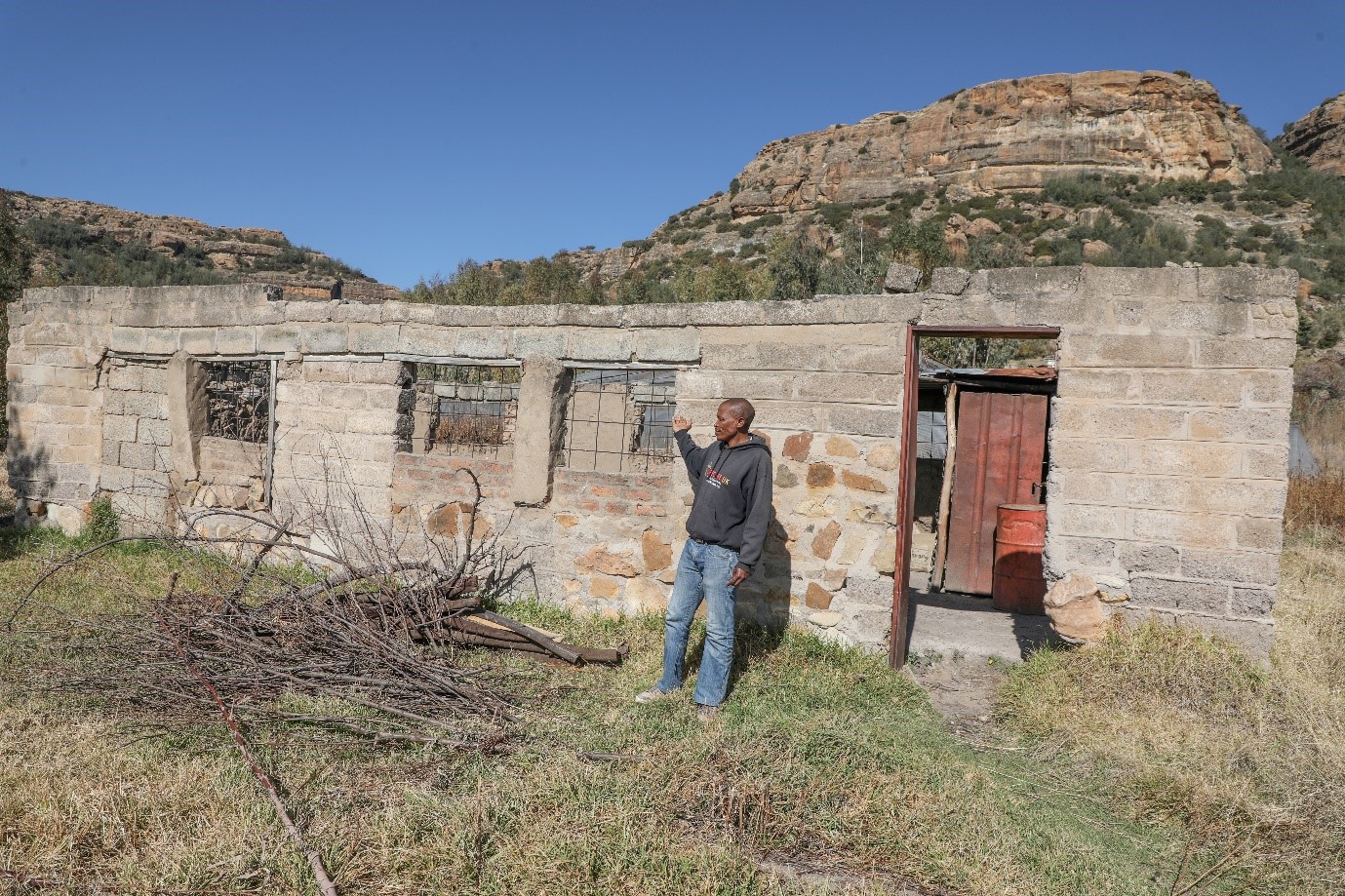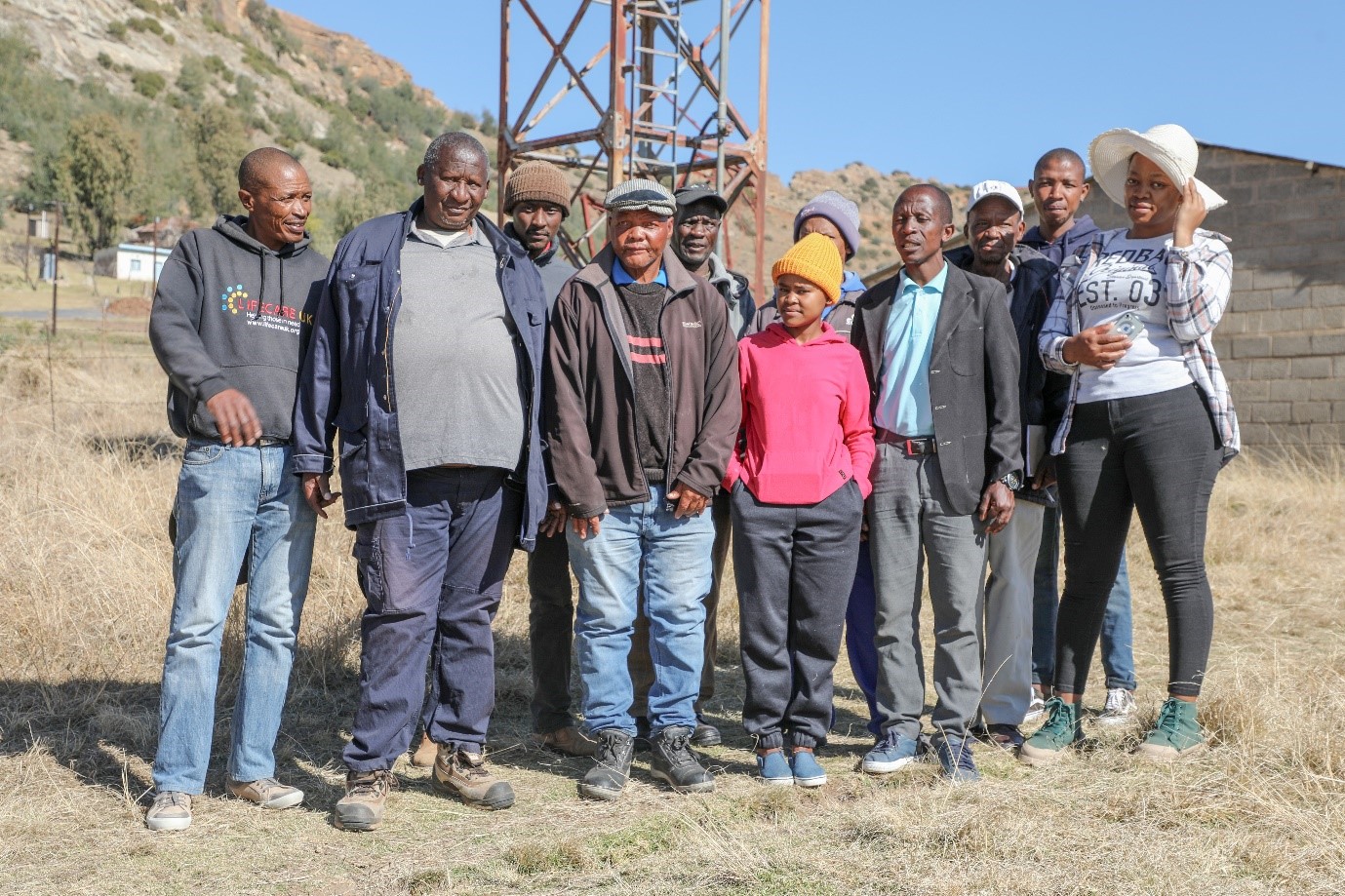Bela-Bela Village Disaster Preparedness: Establishing Disaster Management at the Community Level

By: Reentseng Phephetho, Communications & Digital Officer, Lesotho
Bela-Bela, a small village in Leribe, is nestled along the mountains with imposing rock formations that hang precariously. This picturesque location, however, is fraught with danger. Frequent rock falls threaten the safety of the residents, leaving families without shelter and sometimes resulting in tragic fatalities. Strong winds often sweep through the village, blowing away homes and leaving people stranded. To compound these challenges, climate change has brought about severe droughts, devastating agriculture and livestock and further undermining the community’s livelihoods.
In the past, the villagers tackled each disaster or emergency as it came, often without the necessary skills or knowledge. Tumisang Kola, the Chairperson of the newly formed Village Disaster Management Team (VDMT), shared, "We used to respond to disasters without the necessary skills, and we are aware we have been putting our lives at risk trying to respond."
"We used to respond to disasters without the necessary skills, and we are aware we have been putting our lives at risk trying to respond." - Tumisang, VDMT Chairperson
Disasters can strike at any moment, and preparedness is crucial. Recognizing this need, World Vision Lesotho's Consolidating and Strengthening Disaster Risk Reduction (CSDRR) Project, funded by the European Union and in partnership with the Disaster Management Authority Lesotho, established the VDMT in Bela-Bela. This initiative followed a vulnerability assessment that highlighted the community's need for structured disaster management.

Formed in March 2024, the VDMT comprises 16 members, including four women and twelve men. Now, four months into operation, the team has already made significant strides in community disaster preparedness. They underwent training that introduced them to disaster and emergency management, with a focus on the specific threats facing Bela -Bela. “We have learned techniques to reinforce structures against strong winds and how to create firebreaks to prevent the spread of fires” explained Katiso, we are also working on a community-wide early warning system for rock falls”; the training provided essential skills in disaster prevention and hazard management, aiming to reduce risks within the community.
“We have learned techniques to reinforce structures against strong winds and how to create firebreaks to prevent the spread of fires” - Katiso
The impact of this intervention is already evident in Bela-Bela. Recently, when a house burned down, the VDMT responded swiftly to manage the fire and ensuring the affected family received aid within 24 hours. "Upon seeing the terrible situation caused by the fire, we immediately elevated the matter to the Disaster Management Authority and World Vision. The family was assisted with some items that were destroyed in the fire like, blankets, mattresses, cooking utensils, toiletries and clothes, within 24 hours, which are still sustaining them today," remarked Tumisang Kola.
However, challenges remain “We still need more advanced training to equip our team with skills for actual disaster responses”. Despite these hurdles, the VDMT is eager to continue their work, determined to be fully prepared for any disaster and are working towards a future where the number of deaths caused by disasters declines.
They are already educating the community about disaster preparedness and hazard management through community gatherings. "We are ready to do what the community entrusted us to do—disaster management. We hope to see a different Bela-Bela in a few years, one that is disaster-prepared," echoed Katiso Tsoloane, added.
"We are ready to do what the community entrusted us to do—disaster management. We hope to see a different Bela-Bela in a few years, one that is disaster-prepared,"- Katiso

As the CSDRR project continues to build the VDMT disaster preparedness and management capacities and awareness raising, the teams dream is for Bela-Bela to become a model of community preparedness and resilience, where anticipatory action is the norm, and lives are safeguarded against the relentless forces of nature.